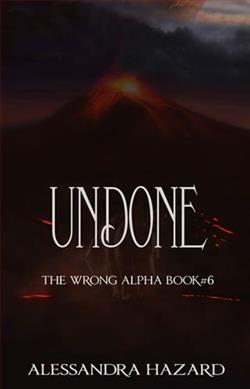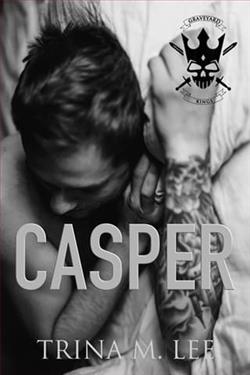Page 78 of Don't Bet On It
“I don’t know.” He scratched his chin, making me realize the goatee he’d been boasting the day I first saw him was gone. When had that happened? “I’ve always been a proponent of eating my vegetables before dessert.”
“I like how you had vegetables.” I laughed, although it sounded hollow even to my own ears. “Sharon’s idea of vegetables was mashed potatoes at KFC.”
Ronan’s body went rigid, and I immediately felt guilty.
“I shouldn’t have said that.” I dragged a hand through my hair, but it snagged. “I always take it to a creepy and weird place. I can’t seem to help myself.”
“No, it’s okay.” He grabbed my hand and extricated it from my hair. “I don’t want you to censor what you say in front of me.”
“What am I saying that’s worth listening to?”
“You say a lot of things worth listening to.” He was stern. “As for your mother?—”
“Sharon,” I automatically corrected.
“Sharon,” he conceded. “You’re allowed to feel what you feel about her. She was a terrible mother.”
“Most people like her,” I muttered. “Even the people who know she’s a terrible mother like her because she has a charming streak a mile wide. It’s so frustrating.”
He pursed his lips. “I don’t remember the other mothers liking her when we were in high school.”
“Oh, the mothers hated her,” I agreed. “They assumed because she was from a lower wealth class that she was out to steal their husbands. The problem is, they were right. She would’ve gladly stolen any or all of their husbands.”
“Still, that couldn’t have been easy for you,” he persisted.
“She didn’t care about that.”
He shook his head, frustration exploding out of him. “I care! I do. It’s okay to have feelings about all of this. Stop trying to stuff it all down. That’s your freaking problem. You never talk about anything and instead let it build up until you turn into Chernobyl.”
His vehemence took me by surprise. “I … um…” What was I supposed to say here? The full breadth of his words hit me. “Did you just equate me to Chernobyl?”
He laughed, relieving the bulk of the tension strangling the oxygen out of the room. He was serious as he regarded me. “You’re a good person, Tallulah. You have a bad temper. Nobody who understands your history blames you for it.”
“But?” I dreaded hearing whatever caveat he was going to tack on to that statement.
“But you have to want to move past this, and I’m not sure you do.” He seemed as if he was talking to himself more than me.
“Meaning what?” I demanded, gearing up to be offended enough to kick him out of my apartment.
“Meaning that you choose to live in the fallout rather than put it behind you.” He was rueful. “It’s your only negative trait.”
I wanted to argue with him—so very much—but I couldn’t. Too much sincerity was in his eyes. “I don’t know how to be any different” was all I could manage.
He cupped the back of my head and drew me close, causing my breath to clog in my lungs. “You do know how to be different, baby. You’re just afraid to let go of your anger because it’s all you had for the longest time.”
There was that shrink speak again. Sadly, it resonated with me. “Maybe I’m better off holding on to that anger. That way nobody, including my mother, will ever be able to use me again.”
“You don’t need to hold on to your anger to remember who your mother is. You have some coping mechanisms. You need more, though.”
“That’s easy for you to say,” I grumbled. “I get why you’re angry with your father—I really do—but on his worst day, Norbert Hawthorne looks like an angel compared to Sharon.”
“He does,” Ronan agreed, not missing a beat. “In some ways, he’s worse, though. You don’t feel the same pressure I do.”
“Because Sharon never expected me to amount to anything.”
“Well, you’ve already proven her wrong on that front. You need to believe that to let go.”
He made it sound so simple. “Where did we land on the sex?” I demanded, desperate to change the subject.















